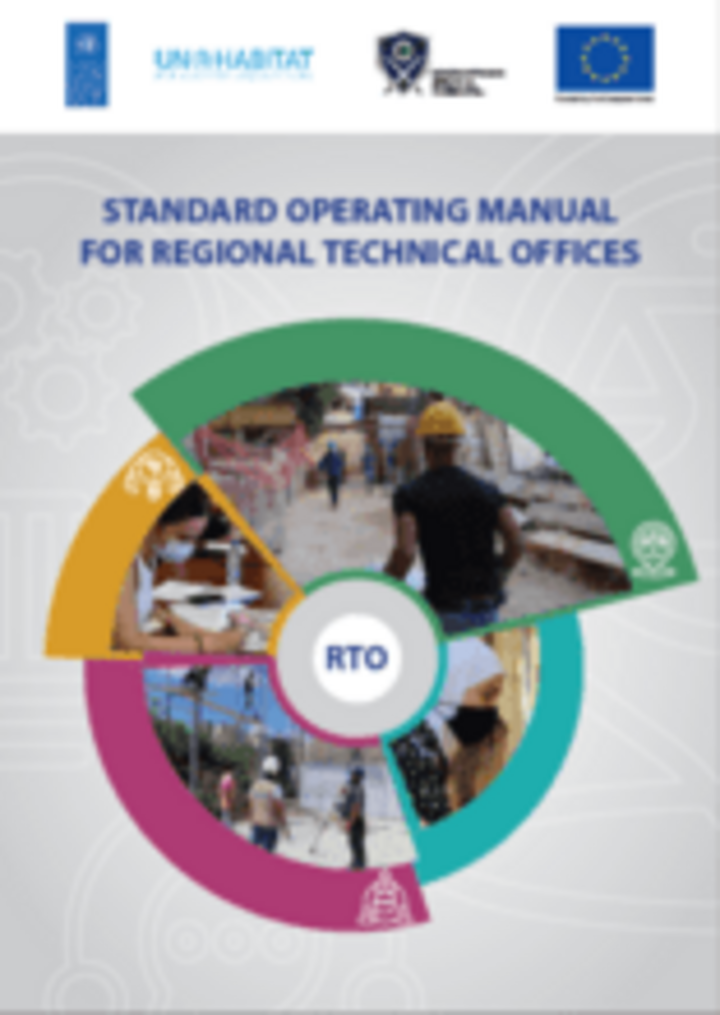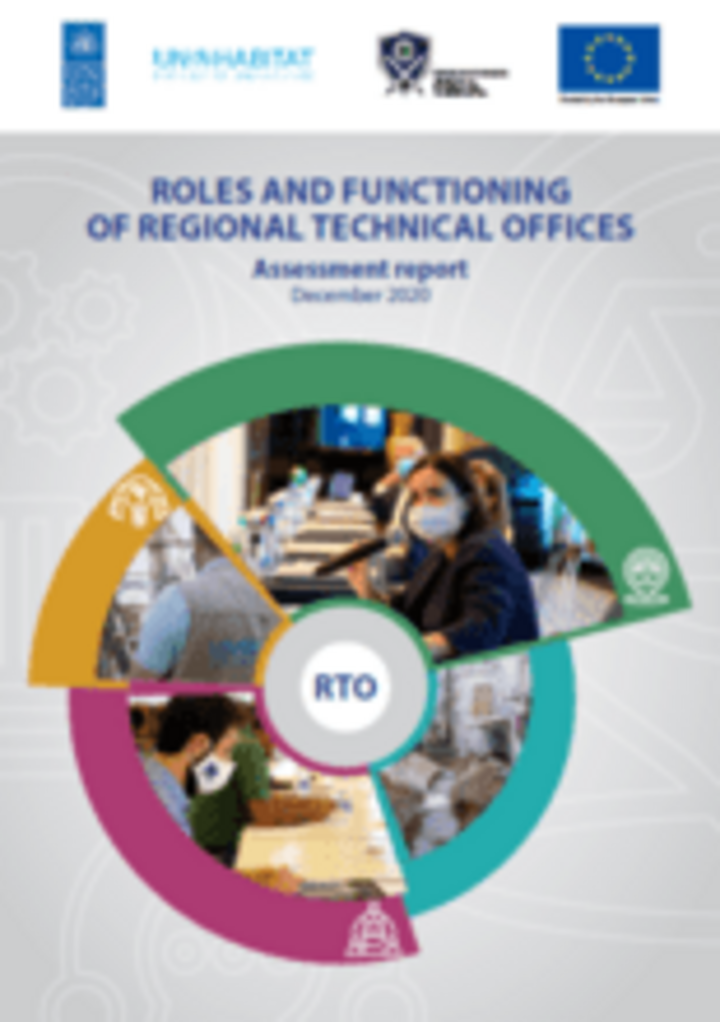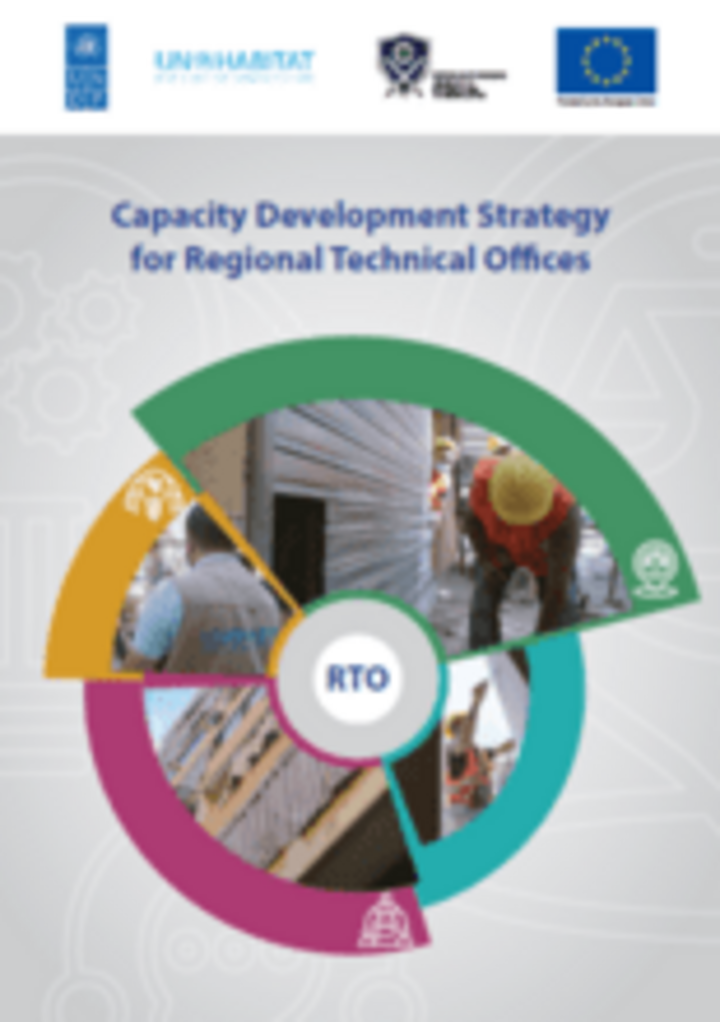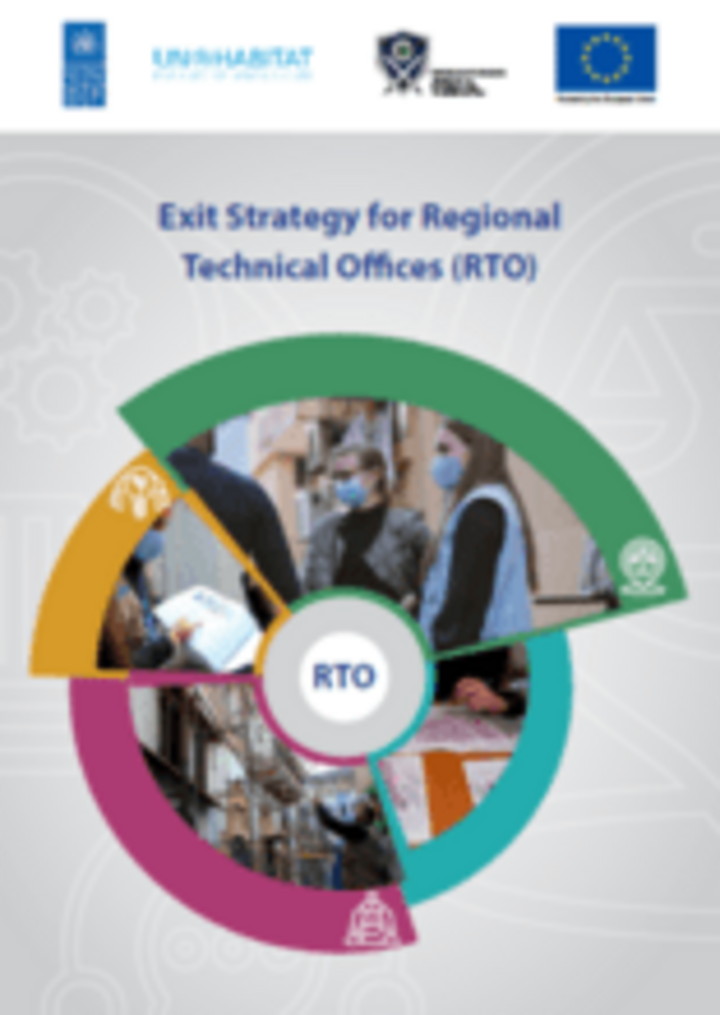Impact of the project
Partners
Beneficiaries
Related publications
Standard Operating Manual for Regional Technical Offices
Regional Technical Offices (RTOs) were established by UN-Habitat in 2007 in order to empower unions of municipalities (UoMs) in emergency responses, planning, and development, and specifically to support reconstruction and development in Lebanon. RTOs were established under the framework of Article 122 of Legislative Decree no. 118/1977, which states that “the engineering unit in the Union shall be in charge of certain tasks on behalf of member municipalities, including: assisting in the approval of applications for construction permits, preparing any required technical studies and consultations, preparing the specifications of the supplies, works and services, and developing plans.”
Roles and Functioning of Regional Technical Offices – Assessment Report
Regional Technical Offices (RTOs) were established by UN-Habitat in 2007 in order to empower unions of municipalities (UoMs) in emergency responses, planning, and development, and specifically to support reconstruction and development in Lebanon. RTOs were established under the framework of Article 122 of Legislative Decree no. 118/1977, which states that “the engineering unit in the Union shall be in charge of certain tasks on behalf of member municipalities, including: assisting in the approval of applications for construction permits, preparing any required technical studies and consultations, preparing the specifications of the supplies, works and services, and developing plans.”
Capacity Development Strategy for Regional Technical Offices
Regional Technical Offices (RTOs) were established by UN-Habitat in 2007 in order to empower unions of municipalities (UoMs) in emergency responses, planning, and development, and specifically to support reconstruction and development in Lebanon. RTOs were established under the framework of Article 122 of Legislative Decree no. 118/1977, which states that “the engineering unit in the Union shall be in charge of certain tasks on behalf of member municipalities, including: assisting in the approval of applications for construction permits, preparing any required technical studies and consultations, preparing the specifications of the supplies, works and services, and developing plans.”
Exit Strategy for Regional Technical Offices
Regional Technical Offices (RTOs) were established by UN-Habitat in 2007 in order to empower unions of municipalities (UoMs) in emergency responses, planning, and development, and specifically to support reconstruction and development in Lebanon. RTOs were established under the framework of Article 122 of Legislative Decree no. 118/1977, which states that “the engineering unit in the Union shall be in charge of certain tasks on behalf of member municipalities, including: assisting in the approval of applications for construction permits, preparing any required technical studies and consultations, preparing the specifications of the supplies, works and services, and developing plans.”
Project manager
Videos
This documentary is the RTO memoir and include a summary about the establishment of RTOs, role, functions and highlighting Tyre and Bourj
This is a short video including testimonies from various partners
This is a short video including testimonies from various partners



